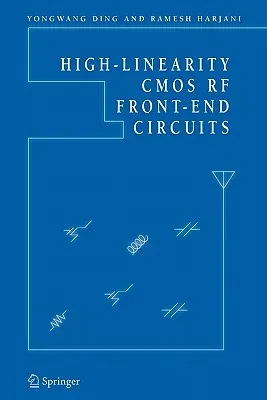Yongwang Ding
(Author)High-Linearity CMOS RF Front-End CircuitsPaperback, 29 October 2010

Qty
1
Turbo
Ships in 2 - 3 days
In Stock
Free Delivery
Cash on Delivery
15 Days
Free Returns
Secure Checkout
Print Length
128 pages
Language
English
Publisher
Springer
Date Published
29 Oct 2010
ISBN-10
1441936637
ISBN-13
9781441936639
Description
Product Details
Authors:
Book Format:
Paperback
Country of Origin:
NL
Date Published:
29 October 2010
Dimensions:
23.39 x
15.6 x
0.76 cm
ISBN-10:
1441936637
ISBN-13:
9781441936639
Language:
English
Location:
New York, NY
Pages:
128
Publisher:
Weight:
204.12 gm

